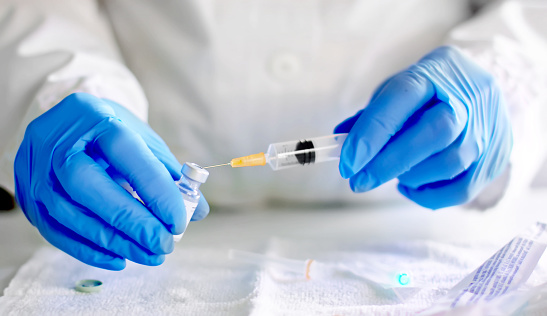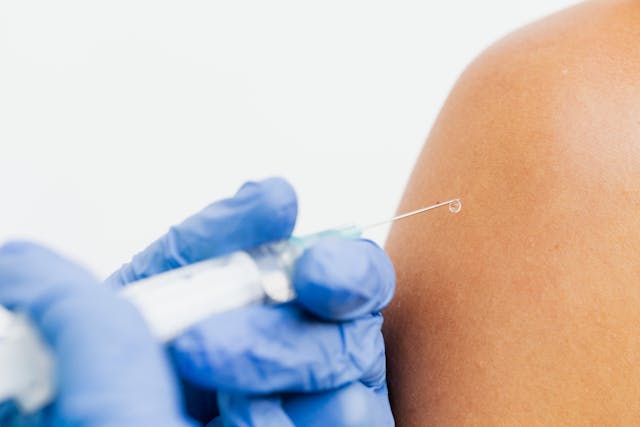
IBD (Ulcerative Colitis and Crohn’s Disease) Treatment Market Size, Share, Growth Trends, and Forecast Analysis
Transparency Market Research (TMR) has published a new report on the IBD (ulcerative colitis and Crohn’s disease) treatment market for the forecast period of 2019–2027. According to the report, the global IBD (ulcerative colitis and Crohn’s disease) treatment market was valued at ~US$ 15.5 Bn in 2018 and is projected to expand at a ~6% CAGR during the forecast period.
Global IBD (Ulcerative Colitis and Crohn’s Disease) Treatment Market: Overview
Inflammatory bowel disease is a group of medical conditions that causes chronic inflammation in the digestive tract. Inflammatory bowel disease is an umbrella term that comprises two principal disorders: ulcerative colitis and Crohn’s disease. Ulcerative colitis is a long-term medical indication that causes inflammation and sores in the inner lining of the colon and rectum. Crohn’s disease is part of inflammatory bowel disease that causes inflammation to any part of the gastrointestinal tract, right from mouth to small intestine and anus. The exact cause of inflammatory bowel disease is not known; however, autoimmune disorders, genetic factors, and lifestyle changes are thought to cause the symptoms of inflammatory bowel disease in an individual. The common symptoms of inflammatory bowel disease include diarrhea, abdominal pain & cramps, constipation, rectal bleeding, weight loss, and fever.
Request a PDF Brochure – https://www.transparencymarketresearch.com/sample/sample.php?flag=B&rep_id=1473
Inflammatory bowel disease (IBD) affects men and women equally, and is more commonly observed in developed countries in the West than developing and underdeveloped countries. There is no permanent cure for this disease, and it requires lifetime treatment and management. However, the most preferred treatment option includes administration of medications such as aminosalicyclates, corticosteroids, biologic drugs, and integrin antagonists. In severe conditions, surgical treatments are also recommended.
Growth of the global IBD (ulcerative colitis and Crohn’s disease) treatment market can be attributed to rise in the prevalence of inflammatory bowel diseases across the world, development of novel drugs, novel pipeline drugs, and increase in access to the treatment of IBD. The availability and launch of biosimilar drugs for the treatment of IBD and rise in the adoption of biologic drugs are the other factors fueling the growth of the global IBD (ulcerative colitis and Crohn’s disease) treatment market. Rise in investments in building a robust pipeline for IBD and increase in lifestyle-related risk factors are likely to boost the growth of the global IBD treatment market.
North America dominated the global IBD (ulcerative colitis and Crohn’s disease) treatment market in 2018, and the trend is anticipated to continue during the forecast period. This can be ascribed to the presence of key players, increase in incidence of IBD, favorable reimbursement policies, and availability of novel drugs for IBD. However, the adverse side effects associated with IBD drugs and high cost of treatment are likely to restrain the global IBD treatment market during the forecast period.
Request a Sample of IBD (Ulcerative Colitis and Crohn’s Disease) Treatment Market: https://www.transparencymarketresearch.com/checkout.php?rep_id=1473<ype=S
New Product Development & Approvals to Drive Global Market
Inflammatory bowel diseases are characterized by chronic inflammation in the gastrointestinal tract, and primarily include Crohn’s disease and ulcerative colitis disease. The exact cause of inflammatory bowel disease is not known, and the high prevalence of these diseases has been witnessed in developed countries. Several medications such as corticosteroids, aminosalicylates, integrin antagonists, biologic drugs such as Tumor Necrosis Factor (TNF) inhibitors, and up to a certain extent, antibiotic drugs, are prescribed to provide relief from the symptoms of these diseases.
The high prevalence and increase in incidence of Crohn’s disease and ulcerative colitis disease in developed countries has led to the development of novel therapeutics drugs. Biopharmaceutical companies have made significant investments in R&D, and numerous pipeline products are in various stages of clinical approvals, and likely to be commercialized during the forecast period. AstraZeneca and Allergan are together developing the MEDI2070 interleukin-23 monoclonal antibody against ulcerative colitis and Crohn’s disease. MEDI2070 is currently in phase IIb of clinical trial for moderate to severe Crohn’s disease, and in phase II for ulcerative colitis. Pfizer’s PF-00547659 and Celgene’s Ozanimod are in phase II and phase III clinical trials, for Crohn’s Disease and ulcerative colitis, respectively. Additionally, the recent launch and approval of new drugs in North America, Europe, and Japan are projected to fuel the demand for IBD treatment drugs in the near future.
Request for Analysis of COVID19 Impact on IBD (Ulcerative Colitis and Crohn’s Disease) Treatment Market – https://www.transparencymarketresearch.com/sample/sample.php?flag=covid19&rep_id=1473
Increase in Lifestyle-related Risk Factors to Drive Market
The exact cause of inflammatory bowel disease is not known; however, researchers consider the combination of several factors such as autoimmune diseases, genetic factors, unhealthy lifestyles, smoking, and environment that lead to the development of symptoms of inflammatory bowel disease. High dosage and regular administration of antibiotics to treat various chronic as well as infectious diseases pose the risk of developing inflammatory bowel disease. Moreover, dosage of non-steroidal anti-inflammatory drugs such as aspirin and ibuprofen increases the risk of developing IBD. No specific food is found to be responsible for IBD; however, for some people, high consumption of specific types of foods, such as junk food, has resulted in the development of IBD. Other factors such as autoimmune diseases, sedentary lifestyle, lack of exercise, and high stress levels could cause IBD symptoms.
Integrin Antagonists Drug Class to Lead Global Market
In terms of drug class, the global market has been classified into TNF inhibitors, aminosalicyclates, integrin antagonists, and corticosteroids. TNF inhibitors comprise biologics and biosimilar drugs that are used as second-line treatment when patients fail to respond to other pharmaceutical drugs. The TNF inhibitors segment is projected to account for a major share of the global IBD (ulcerative colitis and Crohn’s disease) treatment market. TNF inhibitors are monoclonal antibodies developed from human and animal tissues, and are used to stop inflammation in the bowels. The segment accounted for the largest market share in 2018 and is anticipated to gain market share by the end of 2027. The most commonly and frequently used TNF inhibitors include adalimumab, vedolizumab, and infliximab. The integrin antagonists segment is expected to expand at the highest CAGR of ~10% during the forecast period.
Purchase IBD (Ulcerative Colitis and Crohn’s Disease) Treatment Market Report – https://www.transparencymarketresearch.com/checkout.php?rep_id=1473<ype=S
Innovative Product Launches and Mergers & Acquisitions by Key Players to Drive Market
The global IBD (ulcerative colitis and Crohn’s disease) treatment market is consolidated in terms of number of players. A small number of players account for a majority share of the global market. Key players operating in the global IBD treatment market include Valeant Pharmaceuticals International, Inc., Allergan plc, Pfizer, Inc., Janssen Biotech, Inc. (Johnson & Johnson), Takeda Pharmaceutical Company Limited., AbbVie, Inc., Novartis AG, UCB, Inc., and Biogen, Inc. These players have adopted various strategies such as product portfolio expansion, investment in research & development, development of novel IBD (ulcerative colitis and Crohn’s disease) treatment, and mergers & acquisitions to establish a strong distribution network. For instance, in February 2018, Janssen Biotech, Inc. and Theravance Biopharma, Inc. entered into a worldwide collaboration to develop TD-1473 for the treatment of inflammatory bowel disease (IBD), which includes ulcerative colitis and Crohn’s disease. In April 2019, Salix Pharmaceuticals entered into an exclusive license agreement with Mitsubishi Tanabe Pharma to commercialize and develop late stage investigational S1P modulators for the treatment of inflammatory bowel disease.
About Us
Transparency Market Research is a global market intelligence company providing global business information reports and services. Our exclusive blend of quantitative forecasting and trends analysis provides forward-looking insight for several decision makers. Our experienced team of analysts, researchers, and consultants use proprietary data sources and various tools and techniques to gather and analyze information.
Our data repository is continuously updated and revised by a team of research experts so that it always reflects latest trends and information. With a broad research and analysis capability, Transparency Market Research employs rigorous primary and secondary research techniques in developing distinctive data sets and research material for business reports.
Contact
Transparency Market Research,
90 Sate Street, Suite 700,
Albany, NY 12207
Tel: +1-518-618-1030
USA – Canada Toll Free: 866-552-3453


